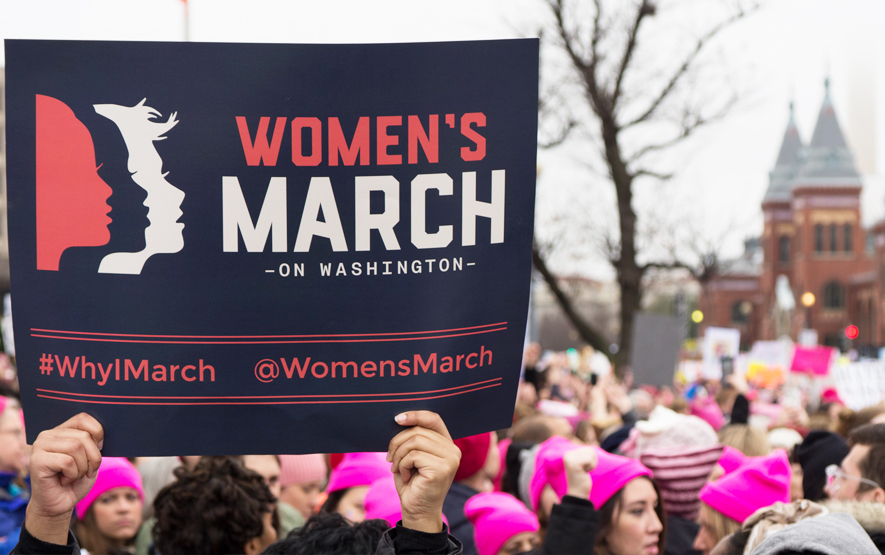
A study by researchers at Loyola Marymount University and American University has found an increase in political activism among women after the 2016 presidential election, but women still lag behind men in their ambitions to run for office.
Authored by Richard Fox, professor of political science at LMU, and Jennifer Lawless, professor of government and the director of the Women & Politics Institute at American University, the report is based on a May 2017 survey of “potential candidates”—fully employed, college-educated women and men of both political parties. More than 2,000 responded to the survey, which was also funded by Politico.
“Is Donald Trump’s ascension to the presidency really pushing women everywhere to throw their hats into the political ring?” the report asks. “That would be quite a feat, as the gender gap in political ambition has persisted for decades, with women significantly less likely than men to be interested in running for office.”
The survey was designed to assess these potential candidates’ feelings about Trump’s election, his policy goals, and his character. Overall, negative perceptions of the president dominated: 60 percent said they were troubled by sexism and mean-spiritedness on his part, and seven out of ten said they were bothered by statements from the president that they perceived to be racist.
Even lighthearted questions provoked strong responses. Half of Democrats said they’d rather have a colonoscopy than a private lunch with Trump; a quarter said they’d prefer a night in jail over a night in the Trump White House.
“Republicans’ reactions are far less negative, but notice that almost 20 percent of Republican women said that seeing Trump on the news makes them sick, too,” the report states. “It’s difficult to envision a more damning set of feelings directed at a national political figure.”
Those negative reactions have prompted an increase in Democrats’ political activism, particularly among women in that party. The number of Democratic women who said they signed a petition or political letter more than tripled after the election, from 11 percent to 39 percent; those who donated money to a candidate or cause increased fourfold, from 6 to 24 percent. Before Trump, only 4 percent of Democratic women had participated in a march or rally; after, 19 percent reported attending the recent Women’s March or a similar event.
When it comes to running for office, however, that distaste with President Trump has not yet prompted more women than men to enter politics. Overall, 23 percent of women said they have “considered” seeking office, while 38 percent of men said the same. That 15-point gap is nearly identical to the 16-point difference Fox and Lawless found in similar surveys from 2001 and 2011.
The survey did reveal a small difference between the parties. Among Democratic women, 24 percent said they’d considered running for office, while 20 percent of GOP women said the same. Additionally, among respondents who have considered it, more than a quarter of Democratic women said the idea first occurred to them in 2017—potential evidence of a “Trump bump” in future candidacies.
“The Trump effect has the potential to boost women’s candidate emergence, at least on the Democratic side of the aisle, over the long run,” the report states. “If more women become politically active because of Donald Trump, then there’s a larger pool of potential candidates from which gatekeepers can recruit.”
The full study can be found online here.



